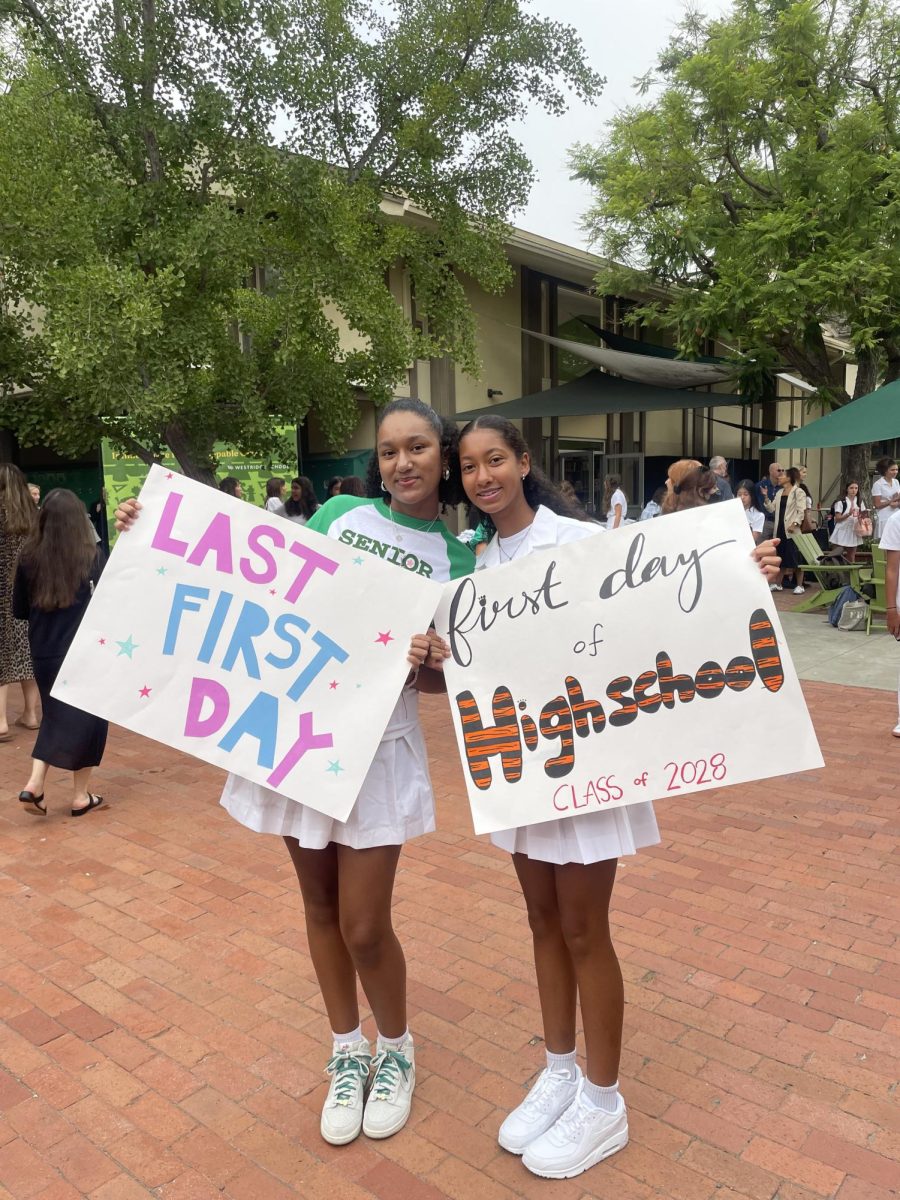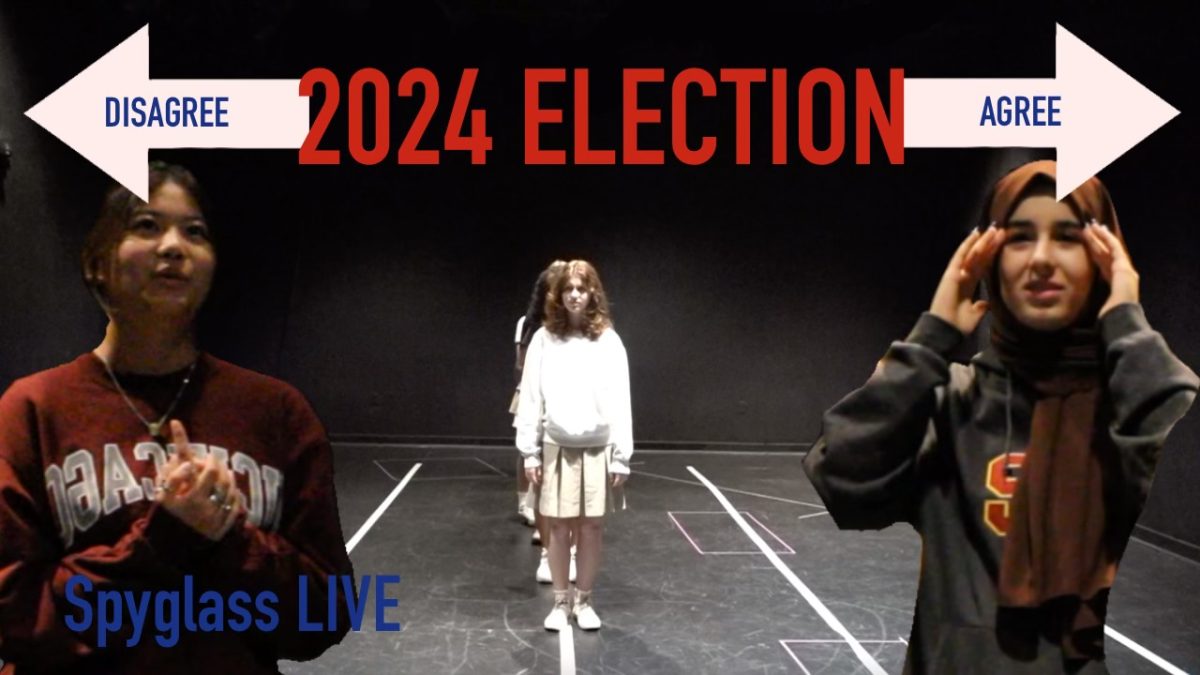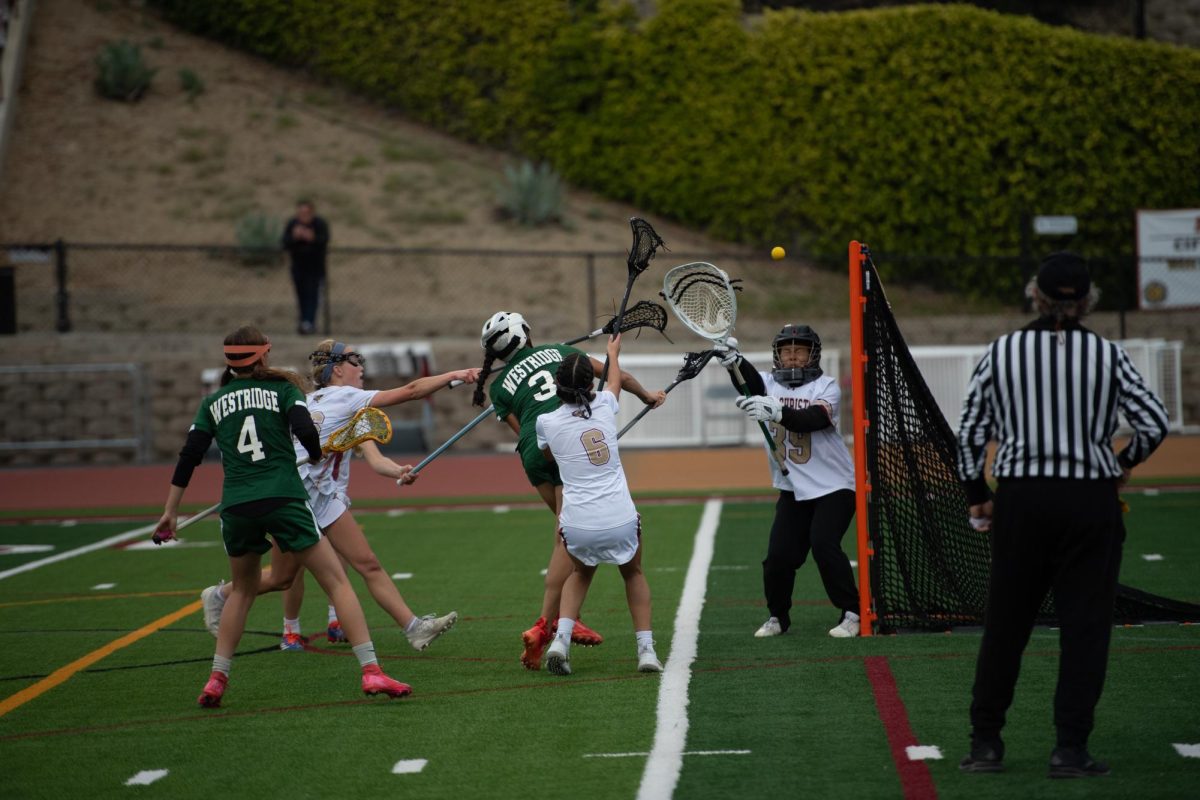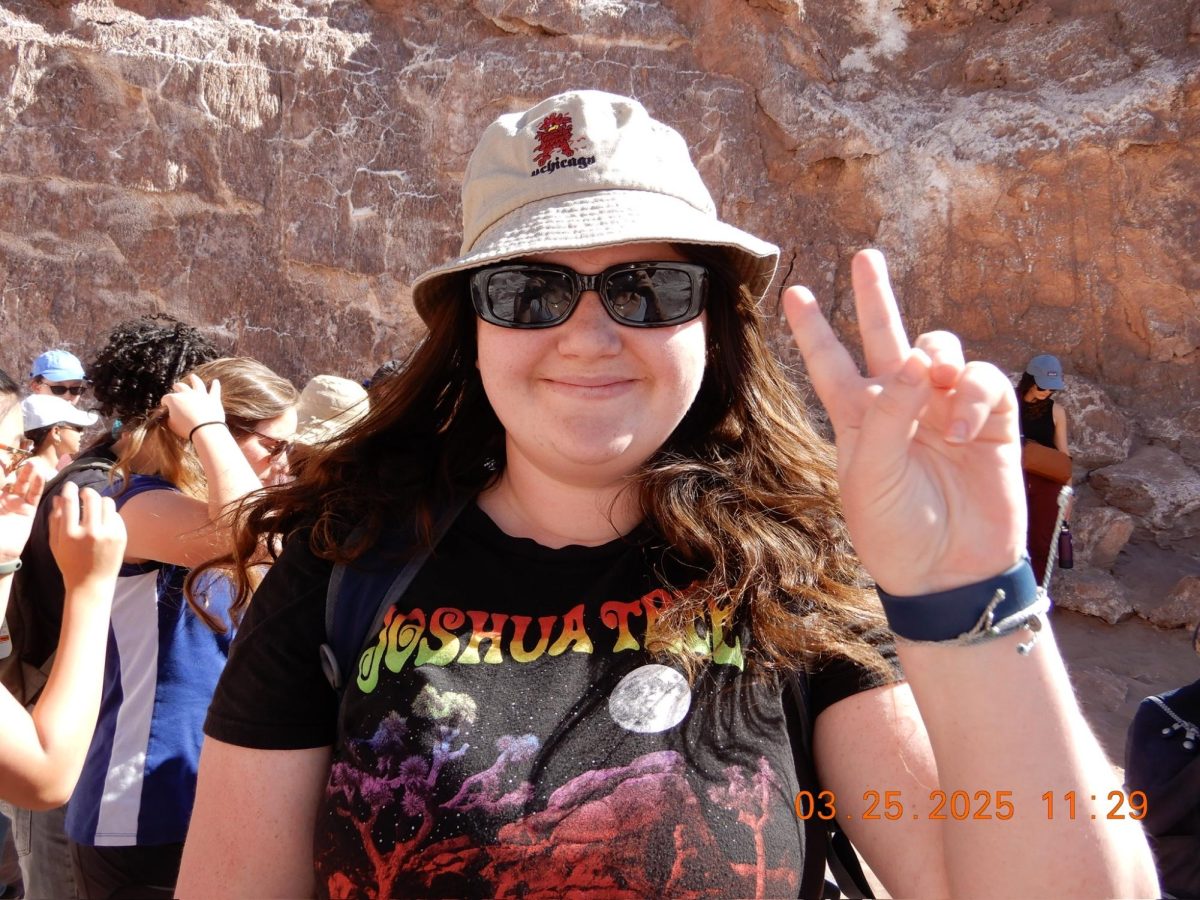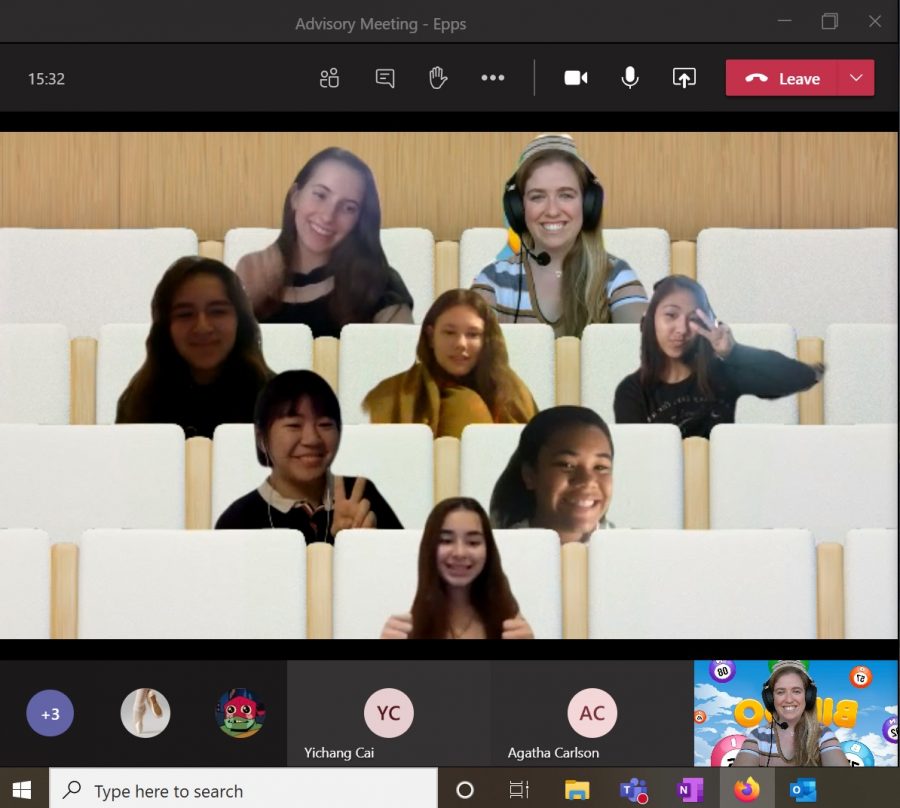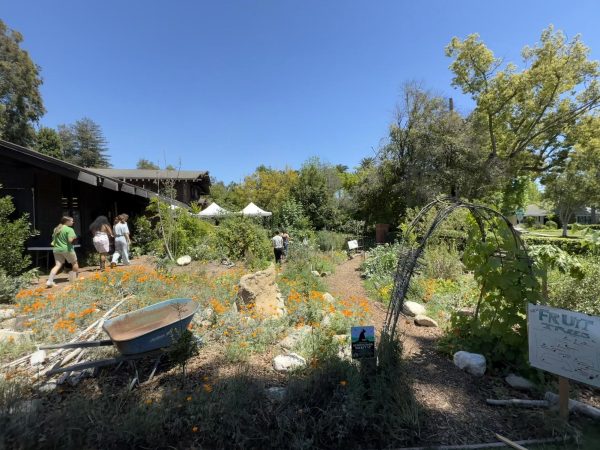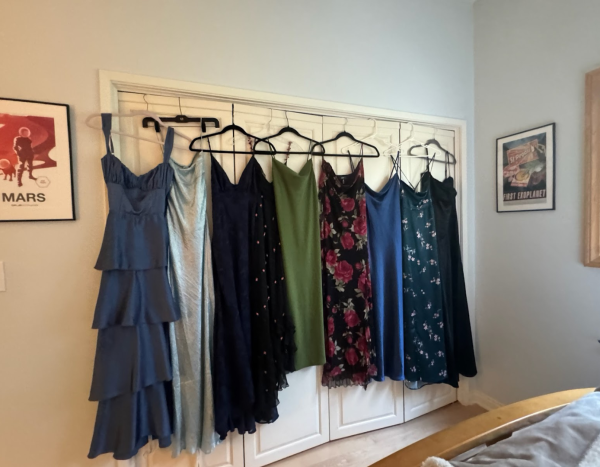Admin Uses New Advisory Schedule to Promote Social Connection
Ms. Epps’ advisory meets together during advisory time.
At 8:29 am, students sleepily stare at the Teams lobby passage: someone in the meeting should let you in soon. Patiently, they wait for their advisors to invite them in into their advisory meeting.
What used to be a once-a-rotation gathering of camaraderie, snacks, and conversation has become an almost daily check-in—minus the chatter.
This year, during remote learning, Middle and Upper School students are required to attend advisory four times a week from 8:30-9:00 am.
“One of the main purposes of advisory for this year is to give more contact points and more opportunities to be together,” said Kerri Epps, a tenth-grade advisor. “The students have a consistent checkpoint with a faculty member to make sure everything is alright, and they have someone to go to if there is a problem.”
Gary Baldwin, Director of Upper School, echoed Epps’s remarks. “When you are on campus, if something is not right or if a student needs help, somebody notices it. But it is much harder to do that during remote learning. Knowing that this will be difficult and stressful, we really wanted to make sure that there were eyes on the students every day. Overall, the two main ideas were for the students to have their groups and advisor to depend on, and for the teachers, it was really to make sure to check up on the students as much as possible.”
When the school went into remote learning last March, teachers and students struggled to find ways to communicate and connect with one another in a meaningful way. As a result, morning advisories were introduced in the fall with the aim to create emotional support and community engagement.
Advisors have used this time given to arrange frequent one-on-one meetings with students.“Advisory has been a great way for adults and kids to connect in a non-academic setting,” stated Katie Wei, an eleventh-grade advisor. “When advisory only met once a rotation [at school], it was hard to use that time for one-on-one meetings, but when it meets every day, then it is easier to schedule those regular individual check-ins.”
Despite the need for more contact points, the early meeting time itself has impacted the way students feel about the advisory. “The mornings definitely affect advisory because we have less energy to engage in a discussion and participate in the advisory. That is why my advisory is quiet most of the time,” said Soleil Y. ’23.
“It’s getting a little tiring. Even though we don’t have it on Wednesdays, I am not used to having advisory four times a week, so it’s a little overwhelming,” said Ileia G. ’22.
Some students would prefer the time to be spent off-screen catching up on sleep or homework. “Personally, I am not getting anything from advisory this year, and it feels forced. It also feels like a waste of time. It’s really hard to be on a screen and interact when no one wants to talk,” said Maeve V. ’23.
Advisors have also struggled with the atmosphere of sleepiness. “They’re not awake!” said Laura Hatchman, a twelfth-grade advisor. “Some of my advisees have first block free, so they are half-asleep and just checking-in.”
Recently admin provided a small silver lining for senior advisory. As an acknowledgment of the lost senior privileges, the administration decided to reduce the senior advisory time to twice a week. “If we were in school physically, any senior who has morning block free, they are not required to attend school until their next class,” stated Ryan Skophammer, the senior class dean. “So requiring them to attend advisory every morning at 8:30, we are depriving them of a senior privilege that they have been looking forward to for their entire senior year. This is our way of returning one of them in the remote setting.”
Mr. Baldwin agrees. “You want to be at least mindful of all the seniors lost and try to bring at least facsimiles of them, or something even better.”




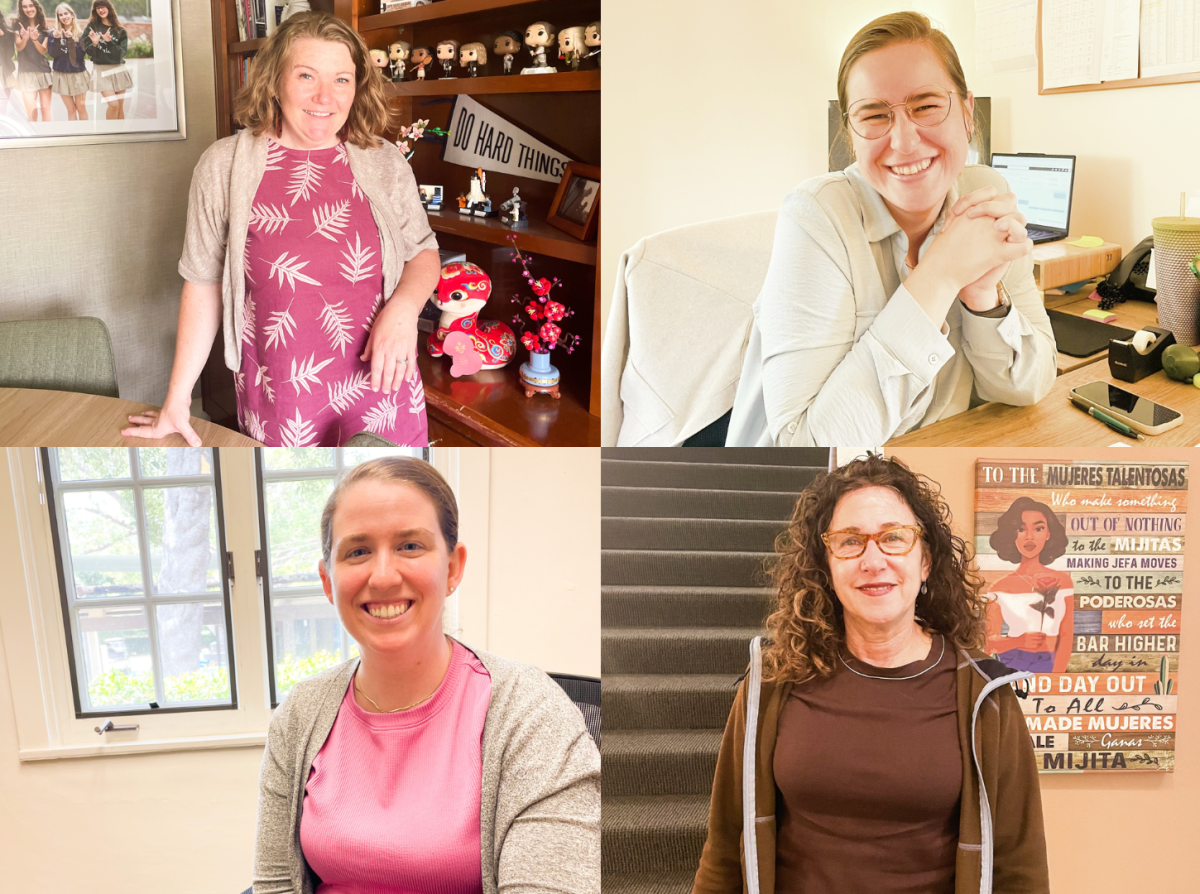
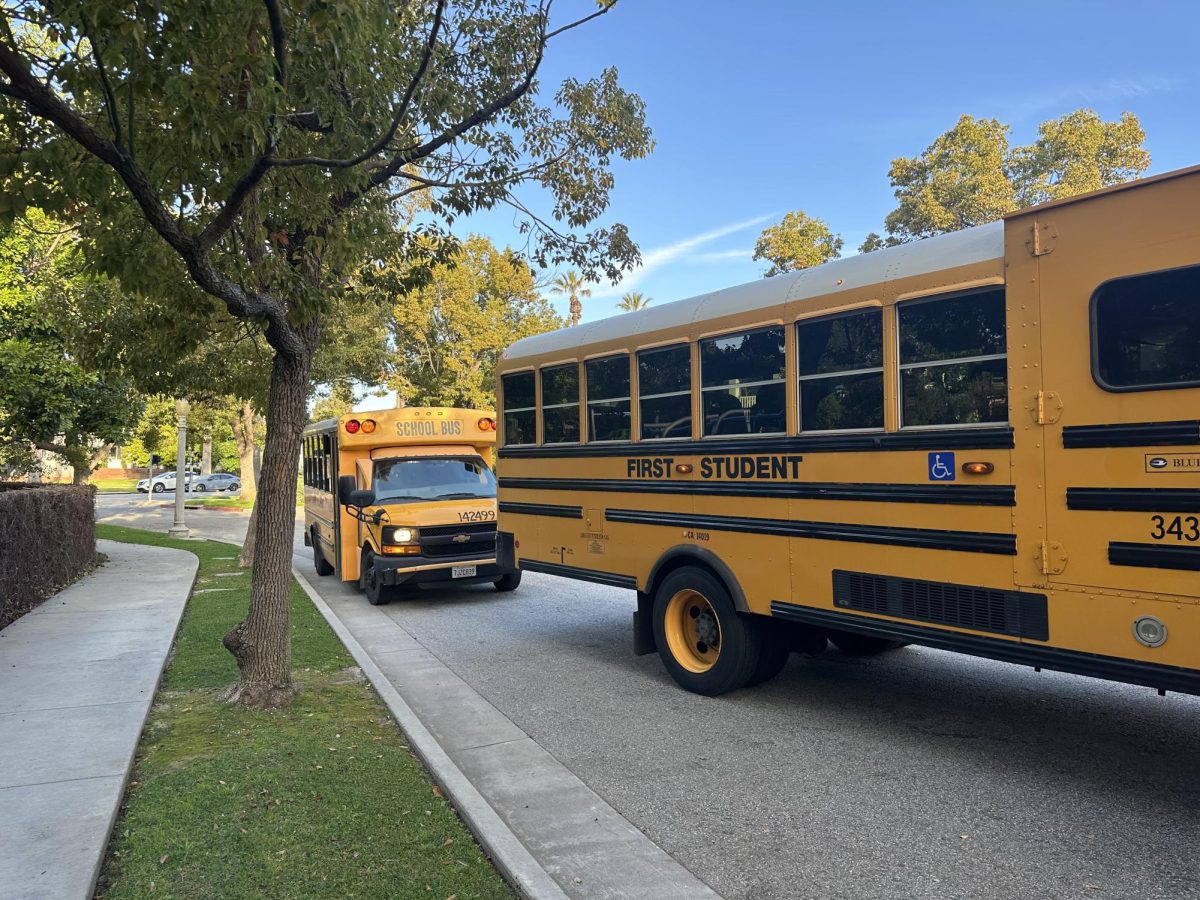


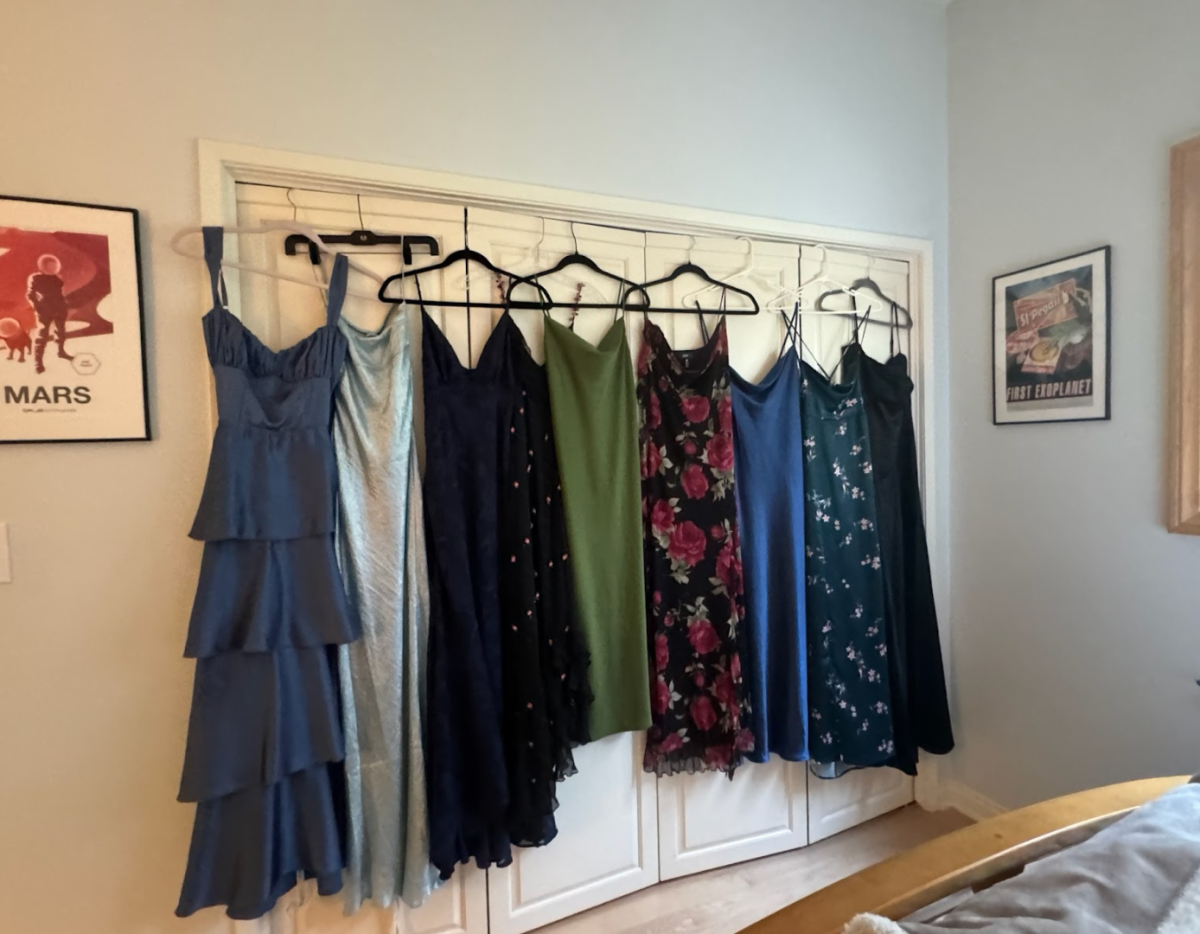








![Dr. Zanita Kelly, Director of Lower and Middle School, pictured above, and the rest of Westridge Administration were instrumental to providing Westridge faculty and staff the support they needed after the Eaton fire. "[Teachers] are part of the community," said Dr. Kelly. "Just like our families and students."](https://westridgespyglass.org/wp-content/uploads/2025/03/dr.-kellyyy-1-e1748143600809.png)








